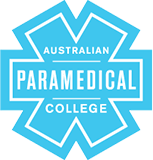
Allied Health courses in Tamworth
Course providers in Tamworth
The following providers offer Allied Health courses in Tamworth.










































Career Pathfinder
Skills shortages + AI Exposure
Discover in-demand careers and understand how each role may be impacted by AI and automation.
- See in-demand occupations across Australia
- Check AI Exposure ratings
- Compare training duration and average income
Common questions
Occupational therapists help patients perform tasks in daily life, while physiotherapists help patients improve their movement, strength and function. The term occupation refers to everyday life tasks, while physiotherapy refers to physical therapy. Both are science-based allied health roles that aim to improve quality of life through prevention, maintenance and treatment.
 Stephen Charlton
Stephen Charlton
You can become qualified to work as an occupational therapist by completing one of the following degrees, depending on your educational pathway:
- Master of Occupational Therapy (postgraduate degree)
Average duration: 24 months - Bachelor of Occupational Therapy (Honours)
Average duration: 4 years - Bachelor of Occupational Therapy
Average duration: 4 years
 Stephen Charlton
Stephen Charlton
You can become qualified to work as a physiotherapist by completing one of the following degrees, depending on your educational pathway:
- Doctor of Physiotherapy (postgraduate degree)
Average duration: 3 years - Master of Physiotherapy (postgraduate degree)
Average duration: 24 months - Bachelor of Physiotherapy (Honours)
Average duration: 4 years - Bachelor of Physiotherapy
Average duration: 4 years
 Stephen Charlton
Stephen Charlton
Yes, you need to complete an accredited degree to work legally as an occupational therapist or physiotherapist in Australia. The two core pathways are completing a bachelor’s degree or a postgraduate degree. The Occupational Therapy Council of Australia and Australian Physiotherapy Council are responsible for accrediting such courses.
 Stephen Charlton
Stephen Charlton
Yes, overseas-qualified practitioners can work in Australia by registering with the Occupational Therapy Board of Australia or Physiotherapy Board of Australia. Practitioners who are currently registered with the Occupational Therapy Board of New Zealand or Physiotherapy Board of New Zealand can apply directly for Australian registration. Other overseas-qualified practitioners have to fulfil the requirements listed on the relevant webpages of the Occupational Therapy Board of Australia and Physiotherapy Board of Australia.
 Stephen Charlton
Stephen Charlton
If you have already completed an approved degree in a different discipline, you can gain an accredited postgraduate degree to become qualified to work as an occupational therapist or physiotherapist. Examples of such degrees are a Master of Occupational Therapy, Master of Physiotherapy and Doctor of Physiotherapy. Postgraduate degrees in these fields may have additional entry requirements, including but not limited to health-related prerequisite subjects.
 Stephen Charlton
Stephen Charlton
In some cases, completing vocational education and training (VET) in a related discipline can allow you to meet the entry requirements for a bachelor’s degree in these fields. Entry requirements vary between educational providers. Some providers offer a VET entry pathway with a minimum of a Certificate IV, but others require a minimum of a diploma or advanced diploma. Some providers do not offer a VET pathway for these courses at all. Therefore, it’s wise to confirm the entry requirements for your desired bachelor’s degree before starting a VET course.
 Stephen Charlton
Stephen Charlton
In addition to completing an accredited degree, occupational therapists and physiotherapists will need to register with the Occupational Therapy Board of Australia or Physiotherapy Board of Australia to work in Australia. The Australian Health Practitioner Regulation Agency (AHPRA) administers practitioner registration on behalf of these boards. There are different requirements to gain registration for Australian-qualified practitioners, New Zealand-registered practitioners, and other overseas-qualified practitioners.
 Stephen Charlton
Stephen Charlton
Career paths for these professions include independent contracting, starting a practice, working in community care, paediatrics, mental health, rehabilitation, disability, medical or aged care sectors).
 Stephen Charlton
Stephen Charlton
Jobs and Skills Australia reports that the median full-time weekly earnings for occupational therapists and physiotherapists in 2024 are $1,526 and $1,710, respectively. These figures can be contrasted with Australian workers of all occupations, who earn a median full-time weekly income of $1,697.
 Stephen Charlton
Stephen Charlton
There is a significant demand for occupational therapists across Australia. Jobs and Skills Australia’s Occupation Shortage List indicates that the labour market had a shortage of occupational therapists across all states and territories from 2022 to 2024.
 Stephen Charlton
Stephen Charlton
There is substantial demand for physiotherapists in Australia. Jobs and Skills Australia’s Occupation Shortage List indicates that the labour market experienced a shortage of occupational therapists and physiotherapists in most states and territories from 2022 to 2024.
 Stephen Charlton
Stephen Charlton
Working as an occupational therapist or physiotherapist comes with the satisfaction of directly helping to improve patients’ quality of life. Furthermore, the job market is promising, as Jobs and Skills Australia reports there is significant labour market demand for both professions. The future outlook is also positive, as Jobs and Skills Australia reports that the annual employment growth in 2024 for occupational therapists and physiotherapists is 2,200 and 4,100, respectively.
 Stephen Charlton
Stephen Charlton
Further reading


What can you do with a Certificate IV in Allied Health Assistance (Physiotherapy)?
3rd March 2022
What can you do with a Certificate III in Allied Health Assistance?
8th January 2020All courses
- HLT33021 Certificate III in Allied Health Assistance
- HLT47321 Certificate IV in Health Administration
- CHC43315 Certificate IV in Mental Health
- CHC53315 Diploma of Mental Health
- HLT52021 Diploma of Remedial Massage
- HLT41120 Certificate IV in Health Care
- HLT54121 Diploma of Nursing
- CHCSS00070 Assist Clients with Medication Skill Set
- 10795NAT Diploma of Healthcare Documentation
- Bachelor of Physiotherapy
- Master of Social Work
- HLTWHS001 Participate in Workplace Health and Safety
- Bachelor of Social Work
- Graduate Certificate in Sport and Exercise Science
- HLT32912 Certificate III in Health Administration
- HLT33115 Certificate III in Health Services Assistance (Assisting in Nursing Work in Acute Care)
- Bachelor of Criminal Justice and Psychological Studies
- CHC33015 Certificate III in Individual Support (Disability)
- Graduate Certificate in Sports Medicine
- Bachelor of Health Science
- HLT47315 Certificate IV in Health Administration
- HLT40221 Certificate IV in Aboriginal and/or Torres Strait Islander Primary Health Care Practice
- Bachelor of Clinical Exercise Physiology (Honours)
- HLT57921 Diploma of Anaesthetic Technology and Practice
- BSB30120 Certificate III in Business (Medical Administration)
- Bachelor of Clinical Exercise Physiology
- HLT43015 Certificate IV in Allied Health Assistance (Occupational Therapy)
- Bachelor of Science (Genetics and Genomics)
More about Allied Health courses
If you're looking to advance your career in the healthcare sector, exploring Allied Health courses in Tamworth is a fantastic step forward. With a variety of options tailored for experienced learners, you can find a course that aligns perfectly with your goals. Located in the heart of New South Wales, Tamworth offers a supportive community for those pursuing further education in Allied Health, making it an ideal location for students seeking to enhance their qualifications.
Among the advanced courses available, the Bachelor of Science (Honours) (Genetics) is particularly popular. This course not only equips you with a solid foundation in genetics but also provides a platform for conducting research that can significantly impact the healthcare industry. If you are interested in the genetic basis of diseases, this course is an excellent choice for aspiring professionals in Allied Health.
Another remarkable option is the Bachelor of Medical Studies / Doctor of Medicine. This course is designed for those who aspire to enter the highly rewarding field of medicine. By studying in Tamworth, you will benefit from a personalised learning environment, as well as the opportunity to connect with industry professionals and gain practical insights into the medical field.
Studying in Tamworth not only provides you with access to quality education but also allows you to engage with a vibrant community. You will find that local healthcare providers often collaborate with educational institutions, providing students with valuable networking opportunities. This local dynamic enhances the learning experience and supports students as they transition into successful careers in Allied Health.
If you are ready to take your career to the next level by enrolling in Allied Health courses, consider all that Tamworth has to offer. With two advanced courses specifically designed for those with prior qualifications, you can achieve your professional aspirations in a supportive and environmentally rich setting. To explore these options further, visit the Allied Health Courses in Tamworth page and start your journey toward success today!
